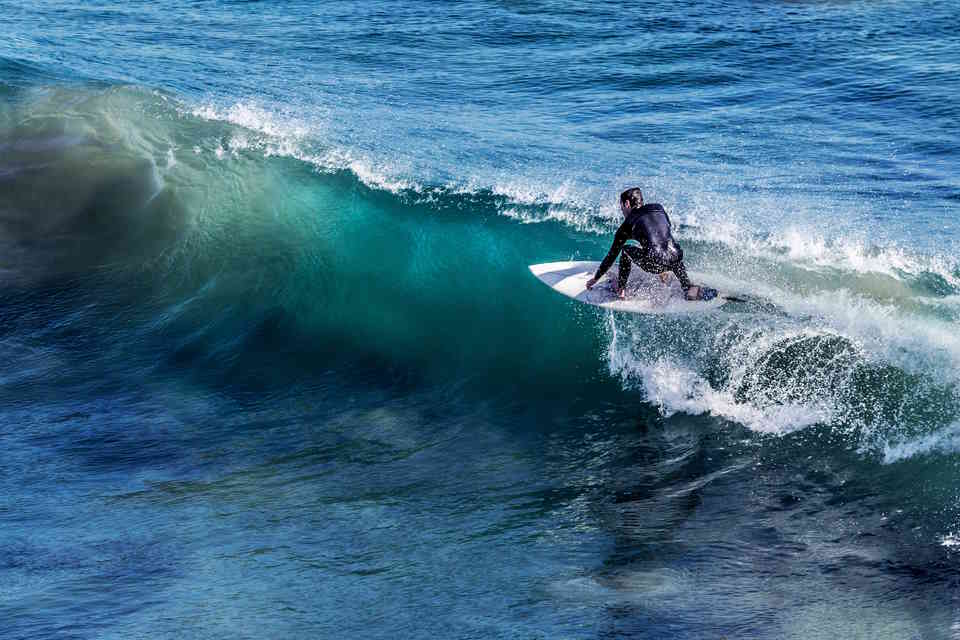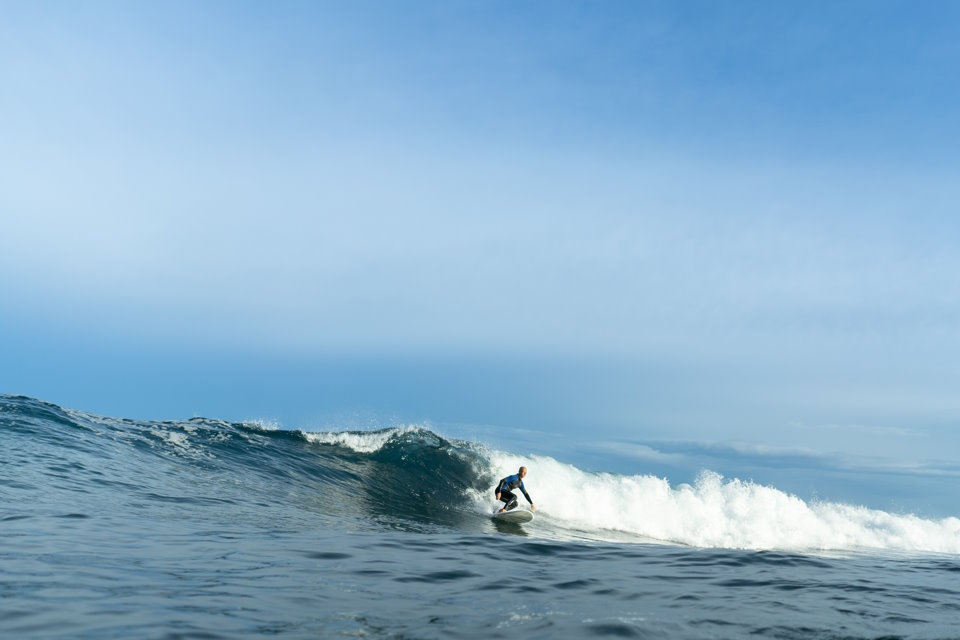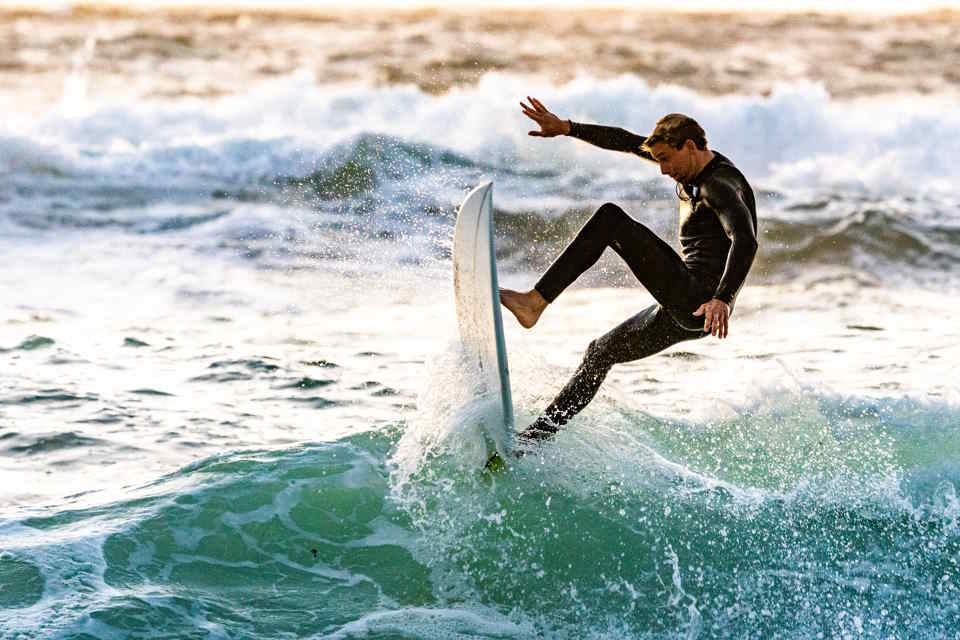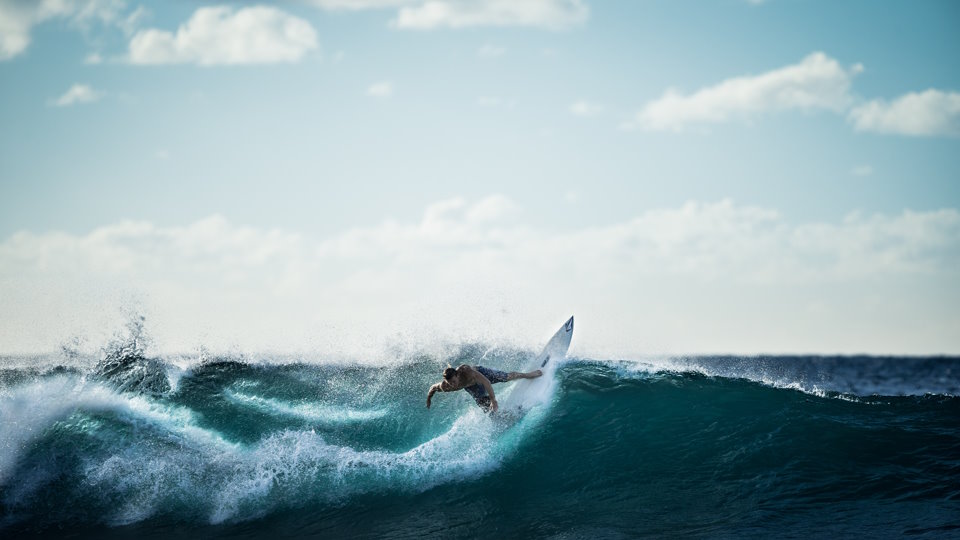Surfing has long been a topic of debate among sports enthusiasts – is it truly a sport? In this blog post, we will delve into the world of surfing to explore the physical demands, competitive aspects, and global significance of this popular water activity. We will start by defining what surfing entails and the skills required to excel in the sport. From there, we will highlight the physical challenges that surfers face, as well as the rigorous training regimens they undertake to stay at the top of their game. Additionally, we will take a closer look at the world of competitive surfing and how athletes strive for glory on the waves. Finally, we will examine how surfing has become a global phenomenon, attracting enthusiasts from all corners of the world. Stay tuned to discover if surfing truly deserves to be considered a sport.Explore the physical demands, training regimens, and global impact of surfing in competitive sports. Define surfing and uncover what makes it a worldwide phenomenon.
Defining Surfing
Surfing is a water sport that involves riding waves on a surfboard. It requires skill, balance, and strength to navigate the dynamic and unpredictable ocean. Surfers paddle out into the lineup, position themselves in the right spot, and then catch waves to ride back to shore. The sport can be both exhilarating and challenging, as surfers must constantly adjust to changing conditions and waves.
Surfing has a rich history that dates back centuries, with roots in ancient Polynesian cultures. It has evolved over time into a global phenomenon, attracting enthusiasts from all over the world. Surfing has become more than just a sport – it’s a lifestyle and a form of self-expression for many individuals. Surfers often speak of the ocean as a spiritual and transformative experience, connecting with nature in a unique way.
Surfing is not just about riding waves; it’s also about connecting with the elements and harnessing the power of the ocean. Surfers must be in tune with the water, weather, and tides to make the most of their surfing experience. It’s a sport that demands respect for nature and the ocean, as well as dedication to honing skills and improving technique. Surfing can be a deeply personal and fulfilling pursuit, offering moments of pure joy and connection with the natural world.
Surfing is a sport that transcends boundaries and cultures, bringing people together through a shared love of the ocean and waves. Whether you’re a beginner learning to catch your first wave or a seasoned pro competing on the world stage, surfing offers something for everyone. It’s a sport that celebrates individuality, creativity, and the power of nature, making it a truly unique and special activity for those who embrace it.
Highlighting Physical Demands
Surfing is a physically demanding sport that requires a combination of strength, agility, and endurance. The act of riding waves on a surfboard involves paddling out to sea, catching waves, and maneuvering on the water. These actions require a great deal of upper body strength, as surfers need to paddle through the waves to reach the lineup. The core muscles are also heavily engaged, as surfers must balance on the board while riding the waves.
Furthermore, surfing requires a significant amount of cardiovascular endurance. Surfers need to be able to paddle out to sea multiple times in a single session, as well as catch and ride waves back to shore. This constant movement and exertion can be physically draining, making it essential for surfers to have a high level of fitness and stamina.
In addition to physical strength and endurance, surfing also demands a high level of agility and coordination. Surfers need to be able to quickly react to changing wave conditions, adjusting their position on the board and performing maneuvers with precision. This agility is essential for successfully riding waves and executing tricks and turns.
Overall, the physical demands of surfing make it a challenging and physically taxing sport. Surfers must be in peak physical condition to perform at their best and overcome the obstacles presented by the ocean. However, the exhilaration and joy of riding waves and connecting with nature make the physical demands of surfing well worth the effort.
Exploring Competitive Surfing
Competitive surfing is a thrilling sport that pits some of the world’s best surfers against each other in high-stakes competitions. These events take place in some of the most challenging and iconic surf breaks around the globe, testing the athletes’ skills and nerve. Surfers are judged on a combination of factors such as wave selection, maneuvers, style, and overall performance, with the goal of earning the highest score possible.
Competitive surfing has evolved significantly over the years, with the introduction of new technologies, techniques, and training methods. The level of competition has never been higher, as surfers push the boundaries of what is possible on a wave. Athletes dedicate countless hours to honing their craft, both in and out of the water, in order to stay competitive and perform at their best.
One of the most important aspects of competitive surfing is the mental aspect. Athletes must be able to handle the pressure of competition, make split-second decisions, and adapt to changing conditions on the fly. This mental fortitude is often what separates the winners from the rest of the pack and can be the difference between victory and defeat.
Overall, competitive surfing is a thrilling and dynamic sport that continues to captivate audiences around the world. Whether you are a seasoned surf fan or a newcomer to the sport, watching these incredible athletes push the limits of what is possible on a wave is an experience like no other.
Evaluating Athlete Training Regimens
When it comes to evaluating athlete training regimens, it is important to consider a variety of factors. First and foremost, the specific physical demands of the sport must be taken into account. For surfers, this includes a combination of strength, endurance, balance, and flexibility. Training programs should be tailored to address these specific needs in order to optimize performance in the water.
In addition to physical training, mental preparation is also a crucial aspect of athlete training regimens. Surfing, like many other sports, requires a high level of mental focus and concentration. Athletes must be prepared to handle the pressures of competition and perform under challenging conditions. Mental training techniques, such as visualization and mindfulness, can help surfers stay focused and perform at their best.
Another key component of athlete training regimens is recovery. Surfing can be a physically demanding sport, and athletes must take proper care of their bodies in order to continue training and competing at a high level. This includes incorporating rest days into their training schedule, as well as prioritizing nutrition, hydration, and sleep.
Finally, it is important for athletes to work with qualified coaches and trainers who can provide guidance and support throughout their training journey. Coaches can help surfers develop personalized training programs, set goals, and track progress over time. By taking a comprehensive approach to athlete training regimens, surfers can maximize their potential and achieve success both in and out of the water.
Analyzing Surfing as a Global Phenomenon
Surfing is a sport that has transcended geographical boundaries and cultural barriers to become a global phenomenon. From the sandy shores of California to the pristine beaches of Australia, surfers around the world are united by their love for riding the waves. The sport has evolved from its origins in ancient Polynesian cultures to become a mainstream activity enjoyed by millions.
Surfing has become a symbol of freedom and adventure, attracting individuals from all walks of life. Whether it’s professional athletes competing in major competitions or casual enthusiasts catching waves on a weekend getaway, surfing has a universal appeal that transcends language and nationality.
With the rise of social media and digital technology, the surfing community has become more interconnected than ever before. Surfers can now follow their favorite athletes, watch live competitions, and share their own experiences with a global audience. This sense of connectivity has fostered a sense of camaraderie among surfers worldwide, regardless of their background or skill level.
As surfing continues to grow in popularity, its impact on local economies and coastal communities has become increasingly prominent. Surf tourism has become a major industry in many countries, attracting visitors from around the world who are eager to experience the thrill of riding the waves. This influx of tourism has not only boosted local economies but has also raised questions about sustainability and environmental impact.









